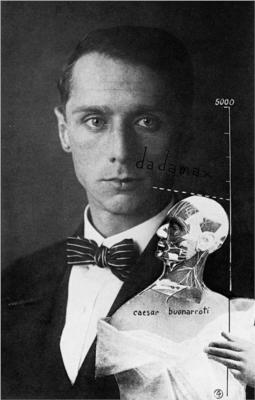Max Ernst Born: April 2, 1891; Brühl, Germany
Born: April 2, 1891; Brühl, Germany
Died: April 1, 1976; Paris, France
Nationality: German
Art Movement: Dada, Surrealism
Painting School: Degenerate Art
Soundtrack:
Grazyna Bacewicz (1909-1969) (Pologne)
Symphony No. 3 (1952)
Dir : Roland Bader
1- Drammatico
2- Andante
3- Vivace
4- Finale : Moderato
Max Ernst is an important figure in the avant-garde of the 20th century. Founder of Dadaism and Surrealism, the German artist works on a variety of mediums ranging from films to his unique "frottage" drawing technique rediscovered by Ernst in 1925 where he uses different surfaces of objects on which he uses erasers of pencil which he uses as a material for his paintings. Under the influence of Post-Impressionism, Ernst, Johannes Theodor Baargeld and Jean Arp brought Dadaism and its visual language to Cologne. Born on April 2, 1891 in Brühl, Germany, Ernst moved to Paris in the 1920s and quickly befriended the surrealists Paul Éluard and André Breton. Ernst's dreamlike imagery gives him the power to disturb and inspire, as in The Elephant Celebes (1921) and Oedipus Rex (1922). The artist moved to New York with the famous art collector Peggy Guggenheim in the 1940s but returned to France 10 years later. In 1954, Ernst received the Grand Prix for painting at the Venice Biennale and a major retrospective of his work was organized the following year at the Guggenheim Museum in New York. He died on April 1, 1976 in Paris just before his 85th birthday.
Βικιπαίδεια: Μαξ Ερνστ
Τα σημαντικότερα έργα του Max Ernst _____________________

Μαξ Ερνστ - Ο λαβύρινθος του Ασυνείδητου
Max Ernst: Η ζωή και το έργο του


Δεν υπάρχουν σχόλια:
Δημοσίευση σχολίου